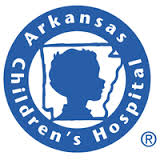Eosinophilic Esophagitis Databank
| Status: | Active, not recruiting |
|---|---|
| Conditions: | Gastrointestinal |
| Therapuetic Areas: | Gastroenterology |
| Healthy: | No |
| Age Range: | Any - 65 |
| Updated: | 4/21/2016 |
| Start Date: | April 2011 |
| End Date: | August 2016 |
Eosinophilic Esophagitis (EoE) Databank (CoFAR 5)
This study will establish a registry for participants with eosinophilic esophagitis (EoE)
and create a research resource that will provide further insights into EoE.
and create a research resource that will provide further insights into EoE.
Eosinophilic esophagitis (EoE) is a newly recognized chronic disease that is increasingly
being diagnosed in children and adults. Many patients with EoE also have food allergies. EoE
is characterized by inflammation and accumulation of a specific type of immune cell, called
an eosinophil, in the esophagus. While there have been several large studies of EoE, very
few have focused on the roles the immune system, genetics/heredity, and the environment in
EoE.
The samples and information collected from participants will help to identify and understand
the genetic mechanisms underlying eosinophilic esophagitis.
The Cincinnati Children's Hospital Medical Center will serve as the Central Laboratory for
genetic characterization studies.
being diagnosed in children and adults. Many patients with EoE also have food allergies. EoE
is characterized by inflammation and accumulation of a specific type of immune cell, called
an eosinophil, in the esophagus. While there have been several large studies of EoE, very
few have focused on the roles the immune system, genetics/heredity, and the environment in
EoE.
The samples and information collected from participants will help to identify and understand
the genetic mechanisms underlying eosinophilic esophagitis.
The Cincinnati Children's Hospital Medical Center will serve as the Central Laboratory for
genetic characterization studies.
Inclusion Criteria:
- Written informed consent/assent from participant and consent from parent/guardian for
minors with agreement for genetic testing;
- Documented diagnosis of EoE at any time confirmed by study team (pathology report
describing greater than or equal to 15 eosinophils/hpf in peak field of an esophageal
biopsy. Participants with eosinophilia in extra-esophageal tissue are permitted).
Exclusion Criteria:
- Participants with known infectious causes of esophageal eosinophilia such as
esophageal fungus, gastric H. pylori, or systemic parasites;
- Participants with a history of persistent eosinophilia greater than 1500 cells/mcl of
blood.
We found this trial at
5
sites
Click here to add this to my saved trials
Johns Hopkins University The Johns Hopkins University opened in 1876, with the inauguration of its...
Click here to add this to my saved trials
Univ of North Carolina Carolina’s vibrant people and programs attest to the University’s long-standing place...
Click here to add this to my saved trials
National Jewish Health National Jewish Health is known worldwide for treatment of patients with respiratory,...
Click here to add this to my saved trials
Arkansas Children's Hospital Arkansas Children's Hospital (ACH) is the only pediatric medical center in Arkansas...
Click here to add this to my saved trials



